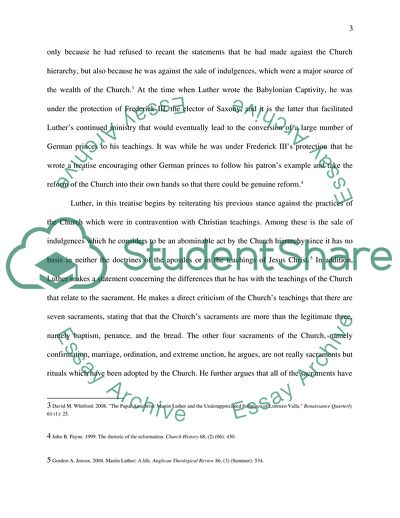Cite this document
(Luthers Eucharist: The Babylonian Captivity of the Church Book Report/Review Example | Topics and Well Written Essays - 2750 words, n.d.)
Luthers Eucharist: The Babylonian Captivity of the Church Book Report/Review Example | Topics and Well Written Essays - 2750 words. https://studentshare.org/religion-and-theology/1816721-luthers-eucharist-the-babylonian-captivity-of-the-church
Luthers Eucharist: The Babylonian Captivity of the Church Book Report/Review Example | Topics and Well Written Essays - 2750 words. https://studentshare.org/religion-and-theology/1816721-luthers-eucharist-the-babylonian-captivity-of-the-church
(Luthers Eucharist: The Babylonian Captivity of the Church Book Report/Review Example | Topics and Well Written Essays - 2750 Words)
Luthers Eucharist: The Babylonian Captivity of the Church Book Report/Review Example | Topics and Well Written Essays - 2750 Words. https://studentshare.org/religion-and-theology/1816721-luthers-eucharist-the-babylonian-captivity-of-the-church.
Luthers Eucharist: The Babylonian Captivity of the Church Book Report/Review Example | Topics and Well Written Essays - 2750 Words. https://studentshare.org/religion-and-theology/1816721-luthers-eucharist-the-babylonian-captivity-of-the-church.
“Luthers Eucharist: The Babylonian Captivity of the Church Book Report/Review Example | Topics and Well Written Essays - 2750 Words”. https://studentshare.org/religion-and-theology/1816721-luthers-eucharist-the-babylonian-captivity-of-the-church.


